
Hearing loss is caused by exposure to sounds that are too loud or continued exposure to loud noises for extended periods. In the past hearing loss was largely due to working conditions with noisy equipment. Protective gear and safety laws have made that a thing of the past. Hearing loss is now mainly caused by exposure to overly loud noises in our leisure pursuits and home environments.
 Image by Depositphotos
Image by Depositphotos

 Image by Depositphotos
Image by Depositphotos





 Image by Depositphotos
Image by Depositphotos
Recovering From Covid-19? Try These 7 Easy Exercises
Exercise can help you recover from Covid-19 quicker, but being smart about it is crucial. Here are a few easy and safe exercises anyone can do at home.

6 Nutrition Tips From Experts to Ensure Better Sleep
Making a few tweaks in your eating habits could do wonders for the quality of your sleep, according to experts.
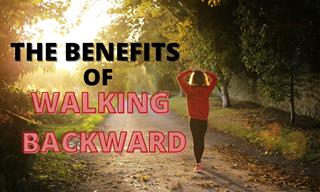
Walking Backward is Beneficial For Both the Body & Mind!
Incorporating backward-walking into your fitness routine can be highly beneficial for both your body and mind. Here's why you should give it a try.

Why Sitting Down is Slowly Putting Your Health at Risk
Some facts everyone should know about sitting.
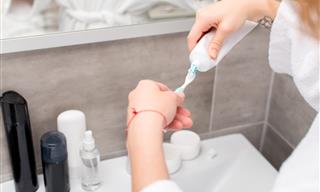
Why Brushing Teeth BEFORE Your Morning Coffee Is Essential
The order in which you drink your morning coffee matters because it could be harming your teeth...

14 Methods to Wake Up in the Morning Feeling Great!
14 things you can do to make sure you wake up energized and feeling well each morning.

Paper Towels Can Do Much More Than Just Mop Up Spills
We all think that paper towels are just for mopping up spills, but it turns out they have many uses you wouldn't expect. Take a look at them here!

LIFE HACKS: 30 Practical Uses for Olive Oil!
3o things you can use olive oil for other than cooking with it.

10 Reasons Why Your Nonstick Cookware Is SO Short-Lasting
Here are 10 common cooking and maintenance mistakes that can ruin nonstick cookware for you to avoid in the future!

The DO'S and DON'TS of Gardening During the Heat
As the temperatures soar, make sure you don’t commit these to your garden.
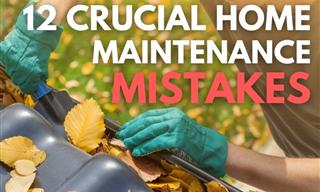
12 Home Maintenance Mistakes I Wished I Knew Earlier
Care to find out if you’ve fallen prey to some of these home maintenance myths?
 8:29
8:29
The BEST Craft Idea For the Little Princesses in Your Life
Make this cute princess charm you can hang on a bag, and it's both easy and fun!
 10:03
10:03
These 20 Hacks Will Make Gardening So Much Easier!
This rapid-fire video gives you tips on not only how to manage and maintain your garden, but even make use of normally useless items!

We Bet You're Not Aware of These Real-World Facts
Don't miss this random collection of interesting real-world facts from the world over that you are unlikely to have heard before

14 Creative Uses For Old Wire Coat Hangers
Coat Hangers are not just useful for hanging your favorite clothes in the closet, they are handy in so many other ways too!

8 Things You Need to Do With Your A/C to Save on Money
Not looking after your AC properly will decreases the efficiency of your system, meaning you’re losing a lot of money.
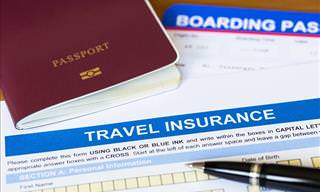
Here's All You Need to Know about Travel Medical Insurance
Planning a trip abroad? This guide will teach you everything you need to know about travel medical insurance!

7 Important and Surprising Uses for Hand Sanitizer
As hand sanititzer has become a household staple now, here are 7 surprising handy uses of it you should know
 1:47
1:47
Brilliant: How to Make a Self-Watering Plant!
How to make your plant water itself, saving you a lot of hassle and meaning you'll never again forget to water them correctly.
 5:26
5:26
Ten Genius Christmas Life Hacks You Surely Never Thought Of
The DIY solutions you always needed for this time of year...
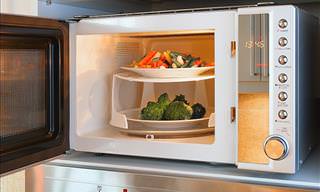
12 Foods We Bet You Didn't Know Could be Microwaved
Do you think that your microwave is only good for heating frozen dinners? If so, you’re sorely mistaken! Use the following microwave hacks to soften sugar, froth milk, whip up some French toast, and more!

10 Household Items You Should Disinfect Every Day
Here is a list of 10 essential household things that you simply must disinfect during the winter months.

This Tip Collection is Amazingly Helpful!
You’ll be pleased to hear there are old wives' tales that are grounded in fact. This list of 9 true tales will help you get your house spic and span!

Ten Golden Mantras for Growing Old with Grace
Ten golden mantras for those who wish to grow older with style and dignity to make life after retirement more pleasant, to enjoy and treasure the elder years of wisdom and intelligence..
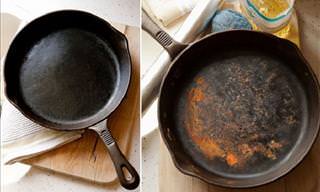
9 Ultimate Methods for Stain Removal around the House
Things we;ve had for a long time tend to lose their fresh-out-the-box look but this can be remedied! These methods will help you remove those stubborn stains!
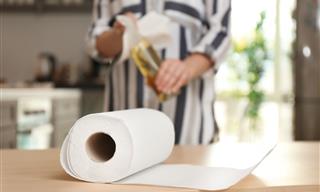
7 Items You Should Never Clean with Paper Towels
As useful as they are, paper towels are not fit for any task. Here are 7 items you should never clean with paper towels.

Discover 6 Easy Ways to Clean a Home with Hydrogen Peroxide
We all want to see our homes clean and sparkling, and it turns out that with hydrogen peroxide - something we all have at home- this can be done with ease!
 5:16
5:16
This is One of the Scariest Pranks I've Ever Seen... (adult)
I don't care who you are, if you saw this guy coming at you, you'd run too!

These Tricks Have Helped Me Become Smart About Cleaning
12 tips and tricks to clean your house and maintain your furniture and appliances with ease

How to Clean Your Jewels at Home for Free
Enjoying clean jewels used to be a tedious chore, or an expensive visit to the jeweler's, but this way you can do it at home, for free!

These Handy Stand Mixer Tips Made A Massive Difference...
A cooking mixer is an important appliance in any kitchen. If you employ these 9 tips, we guarantee you'll fall in love with your even more.

Some Great and Cheap Ways You Can Remove Rust from Metal
Where's there's metal, there's rust - it's an ever annoying problem. These remedies allow you to restore rusty items without using harmful chemicals!

How to Clean BETWEEN the Oven's Glass Panels
Here is a neat trick you can use to make sure that this troublesome gap is kept free of dirt and filth so that your oven door remains spotless!

Banish Your Wrinkles With These Natural Face Masks
Keep your wrinkles at bay with these natural, easy to make face mask recipes.
 11:07
11:07
Struggling to Wake Up Early? Here are 8 Habits to Avoid
Do you do any of these bad habits in the mornings?

6 Home Remedies that'll Stop Your Dog from Scratching
To help alleviate your dog's discomfort, we have gathered six effective home remedies that you can whip up and use today.

7 Ways Lemons Can Make Your Life a Whole Lot Easier!
Here you'll discover seven surprising ways how you can use lemons and lemon juice to make your life cleaner and easier.

5 Foods You Should NEVER Wash, and 5 You Absolutely MUST!
Washing some foods can lead to the spreading of bacteria and other negative consequences. In this article you'll find 5 foods that you should never wash and 5 foods that you should always wash.

This Chinese Spoon Massage Will Keep Your Face Youthful!
When you want to look young, the face is the right place to start, and with the next home massage technique, it's never been easier!

12 Myths We've Been Told About Intercourse that Aren't True
It's time to expose some of the myths we've all been told but are actually boldfaced lies.
 13:30
13:30
10 Cleaning Hacks to Render Your Home Spotless & Germ Free
With both spring cleaning and the need of disinfection in mind, we present to you 10 clever, but a tad unexpected cleaning hacks

WAIT! Don't Throw Out Your Old Food Just Yet...
Whether you're a penny-pincher or just don't like wasting food, these 16 tips will show you what you can do with food you used to throw away.
 2:28
2:28
8 Super Handy Grocery Bag Tips You Have to Try
Whether you prefer paper or plastic, there are enough hacks here to really boost your bag usage. These tips will save you time, money and space. Perfect!

Boost Your Happiness in These 22 Small, Easy Ways
Do these little things every day, to make you feel happy.
 0:50
0:50
The Secret to REALLY Cleaning Your Microwave in 3 Minutes
There is a simple trick to cleaning your microwave in just a couple of minutes, and all it requires is a bowl of water and two slices of lemon.
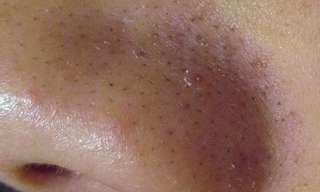
Remove Blackheads From Your Skin Using These Sure Methods
Blackheads make our skin look terrible when it can easily look nice. Here are 6 efficient ways to rid yourself of those black dots right at home!

Eating Out? How to Pick the Healthier Meals
If you're looking to stay on a healthy diet, we have compiled some recommendations for you regarding what to look out for in various international cuisines.


